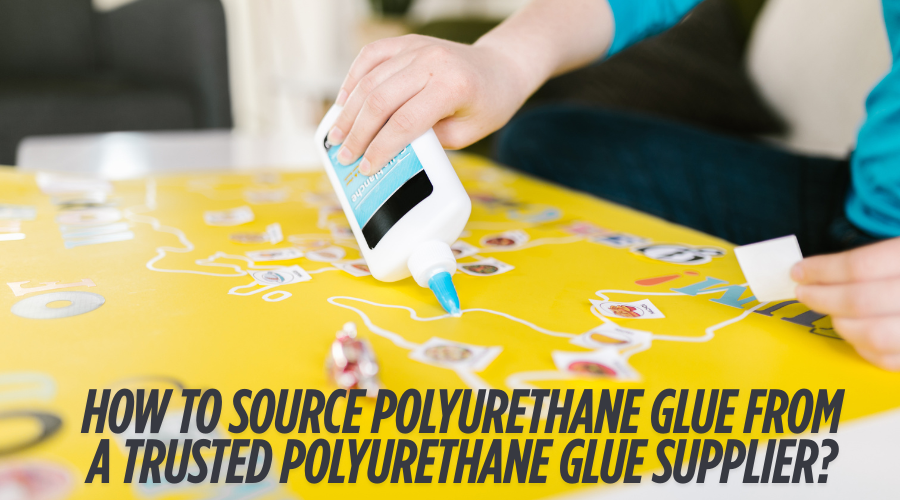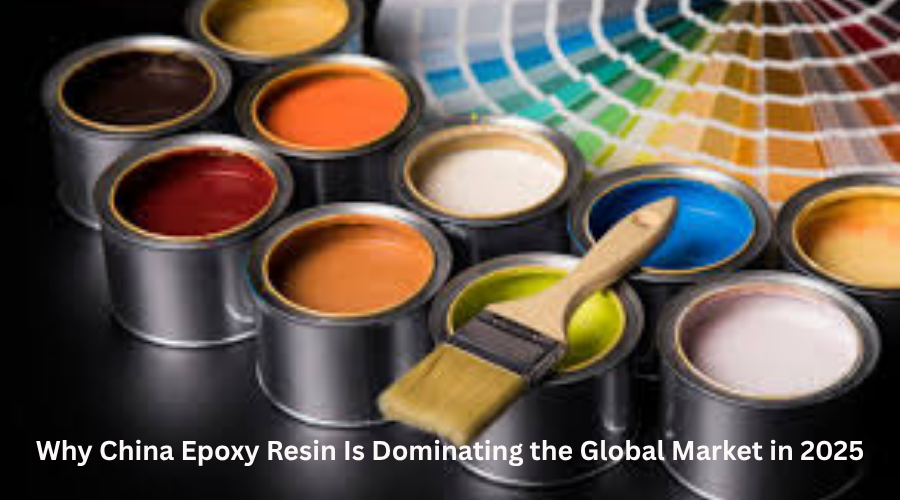How To Source Polyurethane Glue From a Trusted Polyurethane Glue Supplier?
- qinglongdatech
- May 19, 2025
- 5 min read

When it comes to adhesive substances that require exceptional strength, durability, and flexibility, polyurethane glue stands out as a reliable solution. Whether you're in construction, automotive, woodworking, or manufacturing, this glue serves a critical function in achieving long-lasting bonds. However, one common challenge remains: How do you source it effectively, especially from a reliable vendor? In this guide, we'll walk you through the step-by-step process of sourcing polyurethane glue from a Trusted Polyurethane Glue supplier, ensuring you avoid the pitfalls and make confident purchasing decisions.
Understanding Polyurethane Glue and Its Applications
Before diving into sourcing, it's important to understand what polyurethane glue is and why it's in such high demand.
Polyurethane glue is a moisture-curing adhesive known for its strong bonding power, resistance to water and chemicals, and versatility across a wide range of surfaces. Unlike standard glues, it expands as it cures, filling in gaps and creating an enhanced adhesion. It's frequently used in:
Woodworking and cabinetry
Automotive parts assembly
Footwear and textile bonding
Construction and panel installation
Packaging and furniture production
Its wide range of uses means that industries need not just any glue—but the right formulation and quality. And that's where the importance of choosing the right supplier comes into play.
Why Choosing a Reliable Supplier of Polyurethane Glue Matters
Choosing a trusted supplier isn't just about ensuring product availability; it's about consistency, compliance, performance, and technical support. Here's why it matters:
1. Guaranteed Product Quality
Low-quality glue can fail under stress, humidity, or temperature extremes. A reputable supplier ensures high standards in manufacturing and testing, giving you peace of mind that the product will perform as expected.
2. Regulatory Compliance
Trusted suppliers follow international regulations regarding safety, environmental impact, and product labeling. This is essential for businesses operating in international markets.
3. Custom Solutions
Need a glue with specific curing time, viscosity, or strength? Experienced suppliers can offer customized formulations to match your application needs.
4. Technical Support and After-Sales Service
The best suppliers provide technical guidance, product usage instructions, and troubleshooting. This level of support is invaluable for businesses using adhesives in complex environments.

How to Identify a Reliable Polyurethane Glue Supplier
Finding a trusted supplier isn't always straightforward. Many companies claim to offer top-tier products, but here's how to separate the best from the rest:
Check Certifications
Look for ISO certifications, REACH and RoHS compliance, or other industry-relevant standards. These certifications are a clear sign that the company follows best practices.
Assess Manufacturing Capabilities
Do they have their own factory or just resell products? Suppliers with in-house manufacturing often have better quality control and can respond to custom requests more efficiently.
Evaluate R&D Investment
Suppliers with an active research and development department are typically more innovative. They can keep up with changing industry needs and offer new formulations or improvements.
Review Client Testimonials and Case Studies
Read reviews from other businesses in your industry. If possible, ask for case studies to understand how the supplier has helped similar companies solve adhesive challenges.
Request Samples
Before requesting a high-quantity purchase, request a sample. This allows you to test performance in real-world conditions and ensure compatibility with your materials.
Where to Source Polyurethane Glue: Online and Offline Channels
Once you know what to look for in a supplier, the next step is to explore sourcing channels.
Online Platforms
Websites like Alibaba, Made-in-China, and Global Sources are popular for international sourcing. Use filters to find verified suppliers and check their response rates, years in business, and customer reviews.
Direct from Manufacturer
If you need bulk orders or customized formulations, sourcing directly from manufacturers (often in countries like China, Germany, or the US) can be more efficient and cost-effective.
Industry Trade Shows
Attending chemical or manufacturing expos allows you to meet suppliers face-to-face, see product demos, and build relationships that can lead to more competitive rates and support.
Referrals from Industry Networks
Ask peers in your industry for referrals. Personal recommendations are often the most reliable way to find a dependable glue supplier.
Key Questions to Ask Before Finalizing a Supplier
Don't finalize a deal without asking the following:
What is the minimum order quantity (MOQ)?
Can the supplier provide SDS (Safety Data Sheet) and TDS (Technical Data Sheet)?
What is the lead time for delivery?
Do they offer bulk discounts or long-term pricing agreements?
What is their return or replacement policy for defective batches?
Being thorough with your questions helps avoid surprises and builds a strong, transparent relationship with your supplier.
Common Mistakes to Avoid When Sourcing Polyurethane Glue
Even seasoned buyers sometimes fall into these traps:
Focusing Only on Price
Cheap glue can cost more in the long run through failed bonds, damaged products, and lost customer trust.
Ignoring Product Compatibility
Not all polyurethane glues are the same. Always ensure the glue matches your material type, curing conditions, and application methods.
Skipping the Trial Phase
Never skip testing. Even if the supplier is reputable, testing the glue in your specific environment is crucial.
Neglecting Logistics and Shipping Conditions
Improper packaging or long transit times can degrade adhesive quality. Ensure your supplier understands the importance of climate-controlled logistics.
Building Long-Term Supplier Relationships
Once you find a good supplier, nurture that relationship. Good suppliers value loyal clients and may offer better terms, early access to new products, and customized service in return.
Maintain clear communication
Share feedback regularly
Re-negotiate terms based on volume or performance
Strong supplier relationships are assets—don't treat them as transactional.
Conclusion
Sourcing polyurethane glue doesn't have to be complicated if you know what to look for. Start with understanding your application needs, then use the criteria above to identify a supplier that can deliver not just products—but also reliability, compliance, and ongoing support. Remember, the objective is not just to buy glue, but to invest in performance and quality that will reflect in your final product. With the right supplier, you can be confident that your adhesive needs are in expert hands.
FAQs:
Q1: What industries commonly use polyurethane glue?
Polyurethane glue is used in industries such as woodworking, automotive, footwear, construction, and packaging, thanks to its strong adhesive characteristics and resistance to moisture.
Q2: Can polyurethane glue be used on metal and plastic?
Yes, polyurethane glue is versatile and works well with a multitude of material types including metal, plastic, wood, glass, and concrete.
Q3: How long does polyurethane glue take to cure?
It typically cures within 4 to 24 hours, depending on temperature, humidity, and the materials involved.
Q4: What should I look for in a polyurethane glue supplier?
Look for certifications, manufacturing capabilities, positive client feedback, and technical support services.
Q5: Can I get customized polyurethane glue formulations?
Yes. Many advanced suppliers offer customized solutions based on specific curing time, viscosity, or substrate compatibility.







Comments